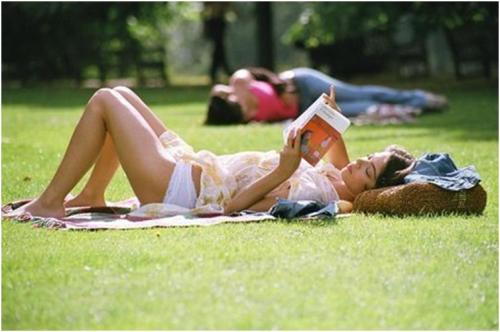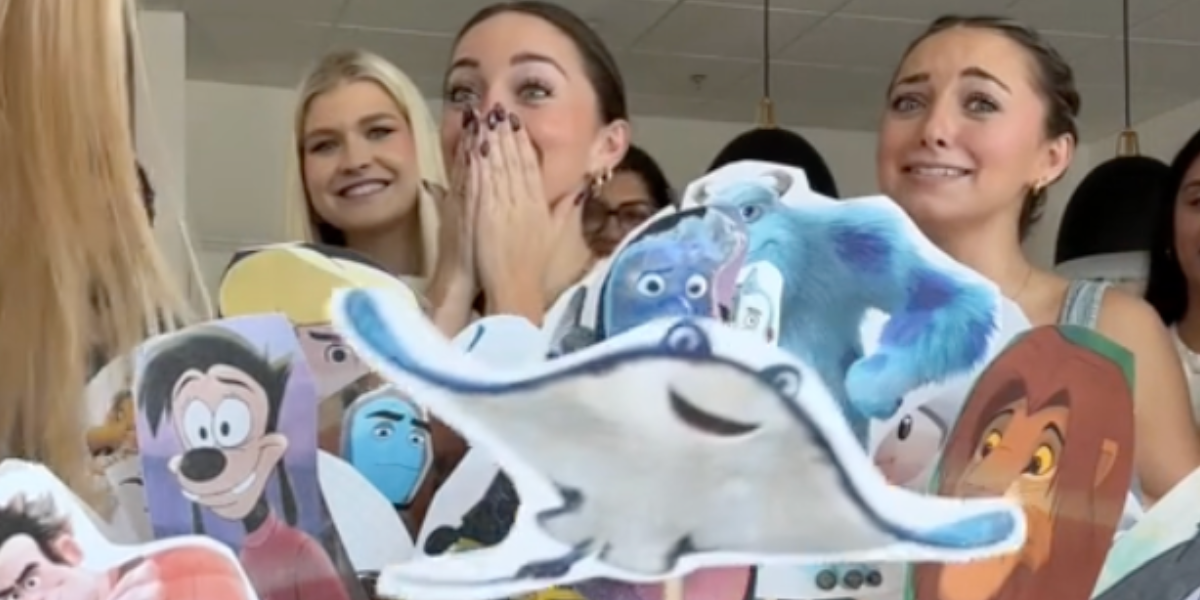Before I start telling you about the article the New York Times wrote about LUGs, I should tell you two things:
1) I have never believed LUGs really exist
2) I think the NYT is frequently unintentionally hilarious. Disclaimer.
In other news, though, the New York Times wrote an article about LUGs.

The “lesbian until graduation” is the cultural archetype of a [usually white, privileged, overeducated] girl who “experiments” with same-sex relationships in college either as part of a rebellion against her parents/hometown/former life as a high schooler with a curfew or as the result of a newfound feminist political consciousness that can only truly be manifested by touching another girl’s vagina.
Its pervasion of mainstream consciousness can maybe be traced back to the 2003 New York Magazine article “Bi For Now,” which uses the term “hasbian” a lot but is otherwise a lot fairer than I would have assumed, focusing more on the lesbian community’s rejection of bisexual women than mocking those women itself. Although there are gems like this:
If there are more hasbians today than ten years ago, Sharpe thinks, it may have to do with the excitement of the gay-positive early nineties. “The aesthetic of gay politics was really cool. There was that whole act up thing, and it was easy to be gay. You had k.d. lang on the cover of Vanity Fair with Cindy Crawford, and there were all these lesbian movies like Go Fish. The gay community felt more exciting back then, and there was something alluring about entering into that scene… It’s like a junior year abroad to Gay World,” says Sullivan.
Maybe more familiar are the tropes of this popular Onion article:
An ambitious student who was active in student government at her Mamaroneck, NY, high school, Oppel first showed signs of an emergent lesbian identity in September 2000. That fall, shortly after enrolling in an Intro To Women’s History course, she began wearing Birkenstock sandals and listening to Ani DiFranco. She quickly rose through the ranks of Oberlin’s progressive activist scene, becoming a fixture at Student Empowerment Network meetings… According to friends, [Oppel’s girlfriend] started getting “weird vibes” from Oppel upon her return from a December trip to Barbados with her father, investment banker Jonathan Oppel, 55, and his new wife Cassie, 31. Sources close to the Oppels report that Amanda, who had been distant from her father prior to the vacation, “really bonded” with him on the trip. She also reportedly spent a great deal of time with fellow travelers and close family friends Greg and Karen Garner, and even more with their son Brad, 23, heir to the Garner office-supply empire.
Hahahahaaaaaaaaaaa.
The thing about both these articles is that while they’re ostensibly discussing the phenomenon of “LUGs,” neither of them really take it seriously – NY Mag references them skeptically in the opening paragraph, and then spends the rest of the article highlighting the lives of real women who are being ostracized and castigated for the genuine emotional attachments they’ve made. The Onion is a humor magazine, dedicated entirely to the discussion of things that are not real. This is the thing about the NYT article, though: it seems to have missed the memo on both those things? So, really, there’s two different stories here: the story that the NYT was actually trying to report on, which is that same-sex relationships actually have a higher incidence among women who didn’t finish high school than women with higher educational degrees. But then there’s the second story, which is that the New York Times apparently thought gay relationships in college really were just about “experimentation.” Both deserve to be talked about.
First of all, the facts:
…according to the new study, conducted by the Centers for Disease Control and Prevention, based on 13,500 responses, almost 10 percent of women ages 22 to 44 with a bachelor’s degree said they had had a same-sex experience, compared with 15 percent of those with no high school diploma. Women with a high school diploma or some college, but no degree, fell in between.
Six percent of college-educated women reported oral sex with a same-sex partner, compared with 13 percent who did not complete high school.
There are a few reasons this could be. If I had to guess – and I shouldn’t be allowed to, because I am not a social scientist – I would guess that these women have been there in some population all along, but haven’t been sampled properly before.
As Amber Hollibaugh of Queers for Economic Justice says, “the results of the federal survey underscored how poor, minority and working-class lesbians had been overshadowed by the mainstream cultural image of lesbians as white professionals.”
Basically, poor minority queer women with less than a high school education are about as invisible as it gets in America, and of course you’re going to overrepresent an activity in a population if it’s the only thing you’re looking at. It may also be an economic shift that just makes sense: Barbara Risman, a sociology professor, says that “the new findings may reflect class dynamics, with high school dropouts living in surroundings with few desirable and available male partners.” [Sidenote: this is NOT about the stereotype of bisexual girls choosing to date whichever gender is “easiest,” it’s about the way that economic realities shape our relationships. Because gays should know at least as well as anyone that relationships are economic as well as romantic bonds. (DOMA you guys!)]
And so, yes: this is interesting! Which is more interesting, the new statistic significance of a heretofore ignored population or the receding of a (possibly imaginary the whole time) different one? Is this about homosexuality becoming less associated with privilege? Is this about smarter researchers? Is this about Papi? They’re interesting questions but hard to answer right now, without more studies.
Also hard to answer: Why is the New York Times so weird about this?
The popular stereotype of college campuses as a hive of same-sex experimentation for young women may be all wrong. To the surprise of many researchers and sex experts, the National Survey on Family Growth found that women with bachelor’s degrees were actually less likely to have had a same-sex experience than those who did not finish high school. “It’s definitely a ‘huh’ situation, because it goes counter to popular perceptions,” said Kaaren Williamsen, director of Carleton College’s gender and sexuality center.

It’s like someone told them Kissing Jessica Stein was a documentary? Anyways, the NYT’s seemingly genuine shock throughout the whole piece is weird, but it’s only one of many disparate points of view they bring in here. It’s like good cop, bad cop, sex researcher cop, and economic injustice cop up in here. I feel like they didn’t know how to handle this study, had a nervous breakdown about it over lunch and then just decided to interview EVERY SINGLE PERSON who has any kind of insight on gay or sex stuff ever. I mean basically, here’s what we’re working with:
We Are All Special Snowflakes: “It’s like a Rubik’s cube of sexuality, where you turn it a different way, and the factors don’t fit together,” said Rea Carey, executive director of the National Gay and Lesbian Task Force. “It may be that the commonly held wisdom was wrong, that people just liked to imagine women in college having sex together, or it may be that society has changed, and as more people come out publicly, in politics or on television, we are getting a clearer view of the breadth of sexuality.”
The One I Personally Agree With Most: “I always thought the LUG phenomenon was overblown, in the context of it being erotically titillating for young men,”[special note: and/or comforting for young men in that it reassures them that our desire for each other isn’t real and that their sexual prowess is the only thing we will ever ever REALLY want] said Barbara Risman, an officer of the Council on Contemporary Families and a University of Illinois at Chicago sociology professor. She added that the new findings may reflect class dynamics, with high school dropouts living in surroundings with few desirable and available male partners.
The Realist: “Working with a gay-rights group is now something you’d put on your résumé,” said Ms. [Amber] Hollibaugh [of Queers for Economic Justice], who did not attend college. “Lesbians who aren’t college-educated professionals are pretty much invisible.”
The One From The Intro: “It’s definitely a ‘huh’ situation, because it goes counter to popular perceptions,” said Kaaren Williamsen, director of Carleton College’s gender and sexuality center.

The One Who Is Dan Savage: Dan Savage, a gay sex columnist in Seattle, said the LUG phenomenon may be overrepresented in the national imagination because so many students sought attention for their sexual exploration: “A lot of them are out to prove something and want their effort to smash the patriarchy to be very visible,” he said.
The One Who Watched The Oscars This Year: Lisa Diamond, a professor of psychology and gender studies at the University of Utah, said that with gay relationships so much more common throughout society, college campuses may have lost their status as the “privileged site” for women’s exposure to different kinds of sexuality. “Maybe our stereotypes are just behind the times,” Ms. Diamond said, adding that while lesbian and gay couples raising children were still assumed to be sophisticated white professionals, as in the movie, “The Kids Are All Right,” the latest parenting data showed that “holy-moly, it’s less likely to be upper-middle-class same-sex couples than ethnic minorities and working-class couples.”
The Franky Likes People Award: “It’s becoming more acceptable, at least in some parts of society, to see your gender identity as fluid,” said Joan Westreich, a Manhattan therapist. “I see women whose first loves were women, who then meet and fall in love with a guy, and for whom it seems to be relatively conflict-free.”
So what this means is: no one knows what this means.
Or everyone does, but it all means something different. Maybe this is just one more person talking crazy on the internet, but: there are, again, two things happening here. There are turning out to be more women with same-sex experiences in more places than we thought, and it’s apparently less of a big deal to them than people had assumed it would be. And in response, people are kind of freaking out, pulling confused faces that there’s a kind of lesbian that isn’t painting “END PHALLUS SLAVERY” on her breasts and marching in circles around the Women’s Studies building. Maybe that’s the simplest and most accurate way to put it, maybe that’s the real news here. Girls being with girls is normal, or at least more normal than it has been before; for the first time, we’re becoming aware of a group of women who are seeking each other out and it’s not because someone taught them about The Lavender Menace in their $7000 freshman seminar. And consequently the people who had convinced themselves that that kind of woman could never exist are weirded out and kind of scared. It’s about where they’re at, not us. It’s about growing pains. You’ll know that they’re over and we’ve made it when you don’t see any more headlines in the New York Times announcing “Women Have Sex With Each Other, No Cherry Chapstick Involved?”







